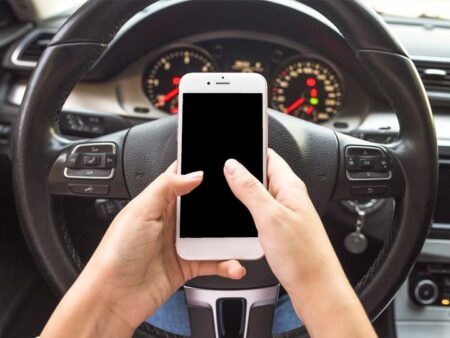 In today’s world, where fuel prices are continually rising and environmental concerns are more pressing than ever, improving your vehicle’s fuel efficiency is a topic of paramount importance. Not only does it save money, but it also contributes to a cleaner environment by reducing carbon emissions. Here are some practical hacks to improve the miles per gallon (MPG) of your vehicle.
In today’s world, where fuel prices are continually rising and environmental concerns are more pressing than ever, improving your vehicle’s fuel efficiency is a topic of paramount importance. Not only does it save money, but it also contributes to a cleaner environment by reducing carbon emissions. Here are some practical hacks to improve the miles per gallon (MPG) of your vehicle.
Clear Out the Clutter
Every vehicle has a weight limit it can efficiently handle. Exceeding this limit can put a strain on the engine, causing it to work harder and consume more fuel. Extra weight in your car can reduce fuel efficiency. It’s essential to keep necessary items like an emergency kit, but try to avoid carrying unnecessary items that add weight to your vehicle. Regularly clearing out your trunk and back seat can make a noticeable difference in your MPG.
Limit Idling
Idling is one of the most significant wastes of fuel. When your car is idling, it’s essentially getting 0 miles per gallon. If you’re going to be stationary for more than a minute, it’s more fuel-efficient to turn off the engine. This is especially true for larger vehicles, which can consume a half-gallon to a gallon of fuel per hour when idling. So, the next time you’re waiting to pick someone up or stuck in a long drive-thru line, consider turning off your engine.
Maintain Steady Speed
Keeping your speed steady and within the speed limit can significantly improve your vehicle’s MPG. Rapid acceleration and deceleration can consume more fuel. This is because every time you brake, you waste the kinetic energy your car has built up. By maintaining a steady speed, you can make the most of this energy. Using cruise control on the highway can help maintain a consistent speed and improve fuel efficiency.
Go Easy on the Pedal
The way you drive can significantly impact your vehicle’s fuel efficiency. Gradual acceleration rather than rapid, aggressive driving can help save fuel. Similarly, try to slow down smoothly rather than braking abruptly. Aggressive driving can lower your gas mileage by roughly 15% to 30% at highway speeds and 10% to 40% in stop-and-go traffic.
Use Cruise Control
When used appropriately, cruise control can help maintain a constant speed, reducing unnecessary acceleration and improving fuel efficiency. However, it’s important to note that cruise control may not be beneficial when driving in hilly terrain, as it can cause your vehicle to speed up more than necessary to maintain a set speed.
Check Tire Pressure
Ensuring your tires are correctly inflated can significantly improve fuel economy. Over 25% of all vehicles on the road have improperly inflated tires. Under-inflated tires can lower gas mileage by about 0.2% for every one psi drop in the average pressure of all tires. Besides, properly inflated tires are safer and last longer.
Plan Your Trips
Combining multiple short trips into one can save fuel. Your engine is most efficient when it’s warmed up. Several short trips from a cold start can use twice as much fuel as a longer multipurpose trip covering the same distance. So, try to run multiple errands in one trip, and plan your routes to avoid heavy traffic.
Avoid Excessive Speeding
Fuel economy tends to decrease rapidly at speeds above 50 miles per hour. You can assume that each five mph you drive over 50 mph is like paying an additional $0.18 per gallon for gas. So, if you’re looking to save money at the pump, slowing down is one of the easiest ways.
Get Regular Tune-ups
Regular maintenance, including oil changes, checking air and fuel filters, can improve your car’s fuel economy. A vehicle that is not running at its best can adversely affect the fuel economy. For example, a dirty air filter can reduce gas mileage in older cars with carbureted engines by as much as 14%.
Use Fuel Additives
Certain fuel additives can help improve your vehicle’s fuel efficiency by cleaning the engine and reducing friction. These additives can remove deposits in the engine that can drag down fuel economy. However, it’s important to use these products judiciously and according to the manufacturer’s instructions.
To sum up, enhancing your car’s fuel efficiency is not a one-off job but an ongoing effort that requires consistent upkeep and conscientious driving practices. By incorporating these hacks into your routine, you can improve your vehicle’s fuel efficiency, save money, and contribute to a healthier environment.
References:
- GM Financial ( https://www.gmfinancial.com/en-us/financial-resources/articles/improve-fuel-efficiency.html )
- Family Handyman ( https://www.familyhandyman.com/list/things-to-do-to-improve-gas-mileage/ )
- Investopedia ( https://www.investopedia.com/financial-edge/0211/9-easy-ways-to-increase-your-gas-mileage.aspx )
- Integrity 1st Automotive (https://www.integrity1auto.com/post/9-tips-to-increase-gas-mileage-45-percent)
- AAA Automotive (https://www.aaa.com/autorepair/articles/how-to-maximize-fuel-economy)
- AAA Automotive (https://www.aaa.com/autorepair/articles/top-10-ways-to-get-better-gas-mileage)
- The Zebra (https://www.thezebra.com/resources/driving/how-to-improve-gas-mileage/)
- Scott Robinson Honda (https://www.scottrobinsonhonda.com/fuel-efficiency-mileage-12-tips-to-boost-both/)
- Popular Mechanics (https://www.popularmechanics.com/cars/a39504408/how-to-improve-your-vehicles-gas-mileage/)
- Progressive (https://www.progressive.com/lifelanes/on-the-road/how-to-improve-gas-mileage/)
Picture Credit: Freepik
